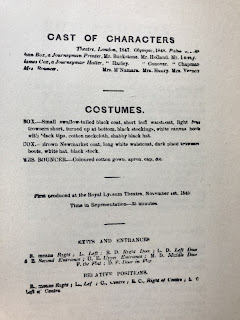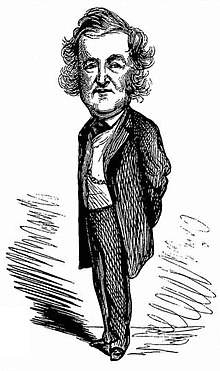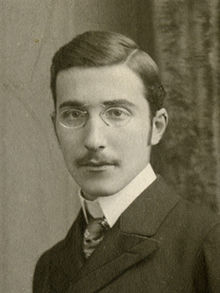This one act play--almost a skit, really--has to be one of the more obscure titles I am going to get to read on the IWE list. Back in the 80s when I first contemplated reading this list, and went to the trouble at least of beginning to collect many of the titles when I came across them cheaply at library book sales and the like, I never once saw a copy of this anywhere, in any anthology or collection, and in those times before the internet, I thought it would be a serious obstacle to my ability to complete the program if I were to try to undertake it. 30+ years on I have still never encountered this play in a "natural" setting, but I was able to find a printed copy from the "French's Minor Drama" series, which according to the internet dates from the later 1800s, but which is in such good condition that I have to believe it is from later than that. I will put up some pictures of it.
As I say, considered as a work of literature, this is rather slight--the most ready comparison that comes to mind is the old play/movie/TV series The Odd Couple--though I can see the conception and some of the gags being funny on stage. The premise is that Box, who works the night shift, and Cox, who works the day shift, rent out the same room in a boarding house, but each without being aware of the other's existence, while the landlady double dips on the rent. Among other things, this suggests that both Box and Cox work seven days a week and never have a day off, but I get that such nit-picking misses the point of the comedy. I didn't mind reading it--it is interesting to me as a period piece, especially in its contrast to the rather grander and much more elaborate literature we are accustomed to reading from England in this time period--and it has moments of being humorous, though a lot of it is goofy, and there are numerous stretches where the dialogue runs like this:
Box: Now then, sir!
Cox: I'm ready, sir! (They seat themselves at opposite ends of the table.) Will you lead off, sir?
Box: As you please, sir. The lowest throw, of course, wins Penelope Ann?
Cox: Of course, sir.
Box: Very well, sir!
Cox: Very well, sir!
Box: (Rattling dice and throwing.) Sixes!
Cox: That's not a bad throw of yours, sir. (Rattling dice--throws.) Sixes!
Box: That's a pretty good throw of yours, sir. (Throws.) Sixes!
Cox: (Throws.) Sixes!
Box: Sixes!
Cox: Sixes!
Box: Sixes!
Cox: Sixes!
Box: Those are not bad dice of yours, sir.
Cox: Yours seem pretty good ones, sir.
Box: Suppose we change?
Cox: Very well sir. (They change dice.)
Box: (Throwing) Sixes!
Cox: Sixes!
Box: Sixes!
Cox: Sixes!
Perhaps you get the idea.
The IWE introduction has this to say about it:
"Chiefly, this farce deserves its immortality (?) because it is a classic idea. It is not, however, merely a dramatic idea. Lodging houses in industrial cities--in the U.S., notably Pittsburgh (?)--used to rent rooms in sleeping shifts, two or three each twenty-four hours, when the steel mills were busy. The idea made a musical show for Sir Arthur Sullivan in 1867; there the title was Cox and Box. The librettist was not Gilbert but Francis Burnand. It is very short and is usually produced in a double bill with a short Gilbert and Sullivan operetta."
John Maddison Morton lived from 1811-1891. He was English, and hailed from Pangbourne in Berkshire, near Reading. In his heyday he was a pretty successful playwright. Box and Cox earned him 7,000 pounds according to Wikipedia, which also notes that the New York Times in 1891 called the play "the best farce of the nineteenth century", which however would seem to say more about the comparatively moribund state of the English theater in the 19th century than anything else. He is revived very rarely in our day by major professional companies.
I've dragged out this review about as long as I can. You can read the entire play in about half an hour, if you want, and if you have any interest in this type of literature it is probably worth the time, even if just as a brief escape from election news and all of the other contemporary political and social problems.
The BS Challenge
1. Supernatural (Season 10, Episode 24 "Brother's Keeper, TV--2015............................2,476
2. Stefan Zweig--The World of Yesterday.............................................................................466
3. Brothers and Sisters (Season 5, Episode 9 "Get a Room", TV--2010..............................419
4. William Faulkner--Light in August..................................................................................359
5. Room Service (movie-1938)...............................................................................................69
6. Gilbert & Sullivan--The Yeoman of the Guard (opera)......................................................21
7. Walshin & Leal--Rhode Island Recipes...............................................................................9
8. Andrew Goliszek--In the Name of Science..........................................................................8
9. Stan Cox--The Green New Deal and Beyond......................................................................8
10. Francis W. Shepardson--Beta Lore....................................................................................1
11. John Maddison Morton--Comediettas and Farces............................................................0
12. Walter Hamilton--Parodies................................................................................................0
A small field for a small book whose words do not produce a wealth of other associations.
1st Round
The top four seeds receive byes.
#12 Hamilton over #5 Room Service
#11 Morton over #6 Gilbert & Sullivan
#10 Shepardson over #7 Walshin & Leal
#9 Cox over #8 Goliszek
Cox is 500 pages shorter.
Quarterfinals
#12 Hamilton over #1 Supernatural
#2 Zweig over #11 Morton
Zweig has seen a big revival of his once dormant popularity among the serious reading public in the last few years, as evidenced by the large number of reviews for this book, even outpointing a major Faulkner novel in the seedings. In theory I should go with Morton here because according to my system he is an IWE author in an early round game, and Zweig is not. However, this particular Morton title is a photocopied and bound volume of a book printed in 1886 and out of print since then, and I am rather interested in not passing up the chance to read the Zweig book, or at least have it compete deep into the tournament.
#10 Shepardson over #3 Brothers and Sisters
#4 Faulkner over #9 Cox
Final Four
#2 Zweig over #12 Hamilton
#4 Faulkner over #10 Shepardson
Two routs against books which didn't belong in the Final Four
Championship
#2 Zweig over #4 Faulkner
In addition to Zweig being about 170 pages shorter, I thought it likelier that this Faulkner book, which despite being famous does not appear to have made it onto either of my other lists, would qualify for the tournament again, where it would always stand a decent chance of winning depending on the field. The World of Yesterday has made inroads among a contemporary English-speaking, largely male audience somewhat given to Europhilia and nostalgia, which, even though I could be said to be part of this crowd, is also a reason, perhaps the only reason, that I am a little wary of it. But I am sure I will like it.







No comments:
Post a Comment